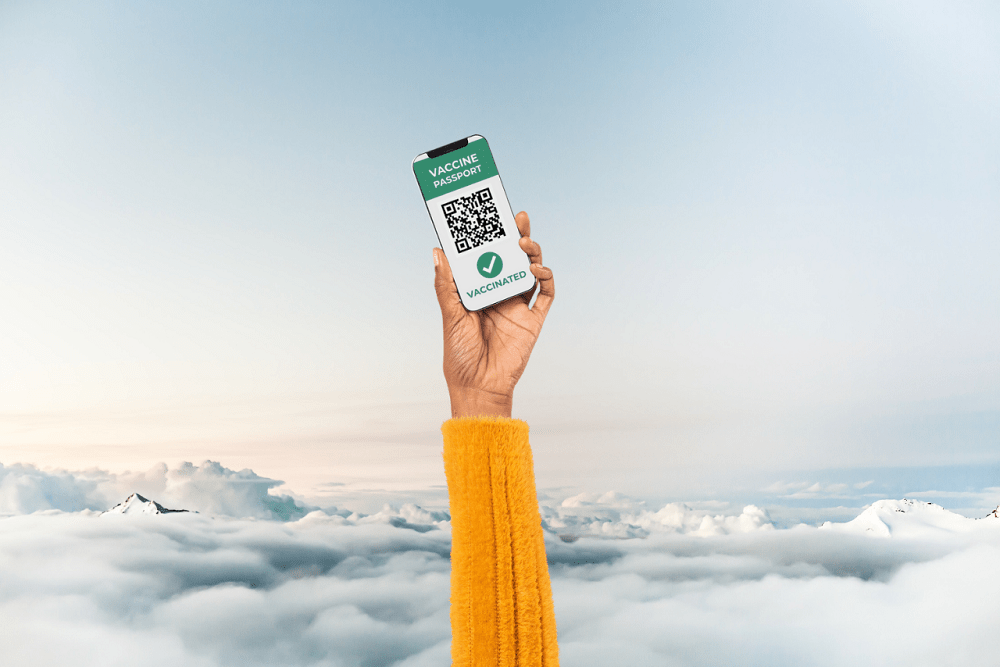The world is changing; the planet’s opening up. And with this lifting of border restrictions and resumption of international travel, many Brits are looking forward to enjoying a late Autumn or Winter holiday after the best part of two years spent cooped up and locked down.
But with this easing of restrictions and increase in flight bookings has come an uplift in confusion to match it, mainly regarding what exactly is now required to facilitate a smooth entry and exit into a destination.
Well, here’s the thing; there are no easy answers to this. Every country has different entry requirements, with some stricter than others concerning COVID-19 tests, vaccination passports, the necessity for quarantine and the rest. That said, there is a fair amount of standardisation across the majority of the UK’s favourite holiday destinations, so here are 6 things you’ll likely need to travel abroad in 2021.
AN UP-TO-DATE PASSPORT & POTENTIALLY, A VISA
First things first, you won’t be going anywhere without your passport or travel documents, regardless of your COVID-19 status.
Though we might sound like we’re stating the obvious, it’s always worth reiterating from the offset; you will need a valid passport to travel. Make sure it’s up to date – rules state that your passport should be valid for at least 30 days from the date of exit, but it’s recommended that you have at least six months on your passport before it expires.
In some countries, a visa is also required, so check before you go; this is particularly pertinent with Brexit now gotten ‘done’.
Do make sure you’ve made both physical and digital photocopies (remotely stored on Google Drive) of your passport. If you were to lose or have stolen the documents necessary for travel, then this could be a lifesaver.
KEEP UPDATED ON CHANGING QUARANTINE REQUIREMENTS
The easing of travel restrictions doesn’t mean that travel has returned to anything resembling normality, and post lockdown holidaymaking is very different to trips taken pre-pandemic.
The world is still very much dealing with the virus and the pandemic feels far from over, so first things first, it’s worth checking the UK government’s guidance on travelling abroad before booking a holiday anywhere. You can search the country you’re visiting here to see the official foreign travel advice for that destination.
The place you’re entering may require you to quarantine, either in a state approved hotel or at the accommodation you’ve arranged. Again, check the specifics of the country you’re visiting via official channels.

TRAVEL & HEALTH INSURANCE
Travelling abroad without insurance is never a good idea, but with the global pandemic ongoing, it’s now even less sensible. It’s worth getting a policy that includes COVID-19 related issues as cover, too. That way, should you catch the virus overseas and have to spend more time out there than intended, it will be slightly less of a problem. Many countries now require proof of an insurance policy that covers treatment for COVID-19. Thailand, for instance, now asks for evidence of insurance that includes cover for treatment of up to $50’000.
It’s a good idea, of course, to get more comprehensive travel insurance. Travel insurance can cover a range of medical conditions as well as cover you for theft, personal liability, and the cancellation of your holiday. Unfortunately, in the times we’re in, the cancellation of your holiday without your input is a very real probability. Travel insurance will compensate you for some or all of the costs of your travel expenses.
RECENT NEGATIVE COVID-19 TEST
Every country has different requirements for showing evidence of a recent negative COVID-19 test, but generally speaking, you will need to show proof of such a test being taken 72 hours before your departure time. This will usually be shown at airport check-in.
That said, some destinations may not require evidence of recent negative COVID-19 test, should you be able to show that you’ve been double vaccinated or recently (but not too recently) had COVID-19, have recovered, and therefore have some immunity.
You’ll also need to provide a negative COVID-19 test before re-entering the UK, taken three days before your return flight. Check out more information on this via the Government’s official guidelines.
For some countries, a lateral flow test is accepted whilst others only allow PCR tests. Do check carefully before booking yours.
EVIDENCE OF VACCINE OR RECENT COVID-19 IMMUNITY
As we just mentioned, some countries may simply require evidence of double vaccination or that you’ve recently recovered from COVID-19 in order for you to gain entry into the country. Again, check with the specific country’s official entry requirements about this.
Additionally, some countries may expect you to show this evidence to enter shops, bars, clubs, restaurants, and other hospitality sites, as well as stadiums, concert venues and other events. It’s best, then, to download the NHS COVID Pass, which shows your vaccination details or test results (your COVID status).
Though this is primarily used digitally, on your smartphone, you’re well-advised to download a copy and print it, too, just in case.
MASKS
Finally, the legal requirement to wear a mask, whether that’s indoors, out, on public transport or simply walking the street, differs hugely from country to country. Even in countries where wearing a mask isn’t a legal obligation, it may well be expected of you.
So, tolerate them, loathe them, or actively enjoy hiding behind them, it’s essential you pack a mask.





